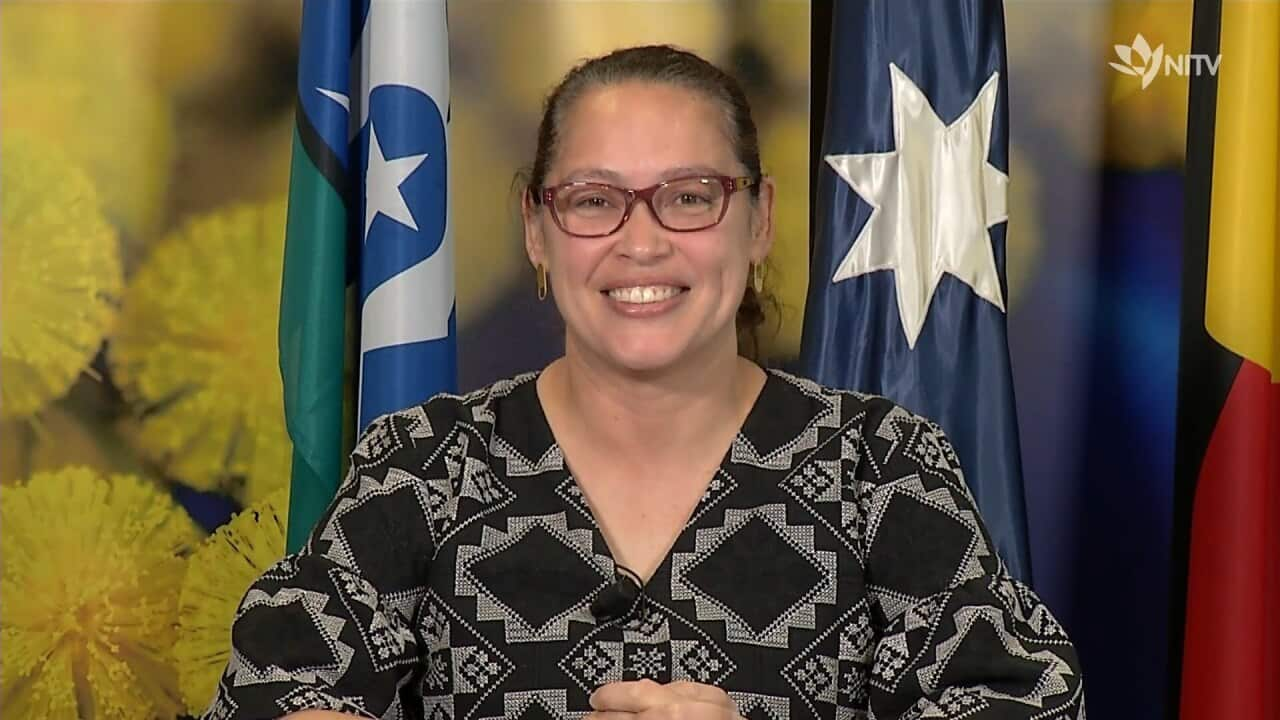Buscando Té or 'Looking for Tea' is one of Peru's most well known LGBTIQ+ blogs which has grown into an online mini-series about adventures and misadventures in love.
The series resonated with audiences across Latin America through its dominant theme that love between people of the same sex is the same as that felt by heterosexual women.
The work is the brainchild of Marianella Castro, who has produced a number of text and video blogs over the past six years in Peru. At the same time that Ms Castro received messages of support and queries for love advice, she also received messages of hate on social media.
At the same time that Ms Castro received messages of support and queries for love advice, she also received messages of hate on social media.

Marianella Castro Source: Supplied
"Social networks are a parallel world. They don't have a face or a name and it's sometimes the exacerbation of what you can say, the extreme of what you think, and that's how we always take it. Since we started we've had many insults and threats," Ms Castro told SBS Spanish.
Ms Castro was inspired to begin advocating following a rape case in Peru of a 15-year-old girl by her father, who intended to "cure" her of lesbian inclinations, a phenomenon known in the South American country as "corrective rape".
While there aren't substantial statistics about the highly controversial practice in Peru, found that it was often carried out with the consent of families or within religious groups that looked to stop homosexuality.
"When that happens, she no longer wanted to live," Ms Castro said.
"At that moment we knew we had to do something." The cases and experiences unearthed by the LGBTIQ+ community within Peru affected Ms Castro and served as a catalyst for her to begin blogging with her fiance Ana Claudia.
The cases and experiences unearthed by the LGBTIQ+ community within Peru affected Ms Castro and served as a catalyst for her to begin blogging with her fiance Ana Claudia.

A participant marches during a rally held to celebrate World Pride Day 2017 in Lima, Peru, 01 July 2017 Source: AAP
Same-sex activity among consenting adults is legal in Peru, but households headed by same-sex couples are not eligible for the same legal protections available to heterosexual couples.
Ms Castro said she had been the target of verbal threats and even witnessed her car being vandalised with the word "lesbian".
Quest for protection in Australia
Ms Castro's mother and siblings live in Australia but she said she never intended to move away from her homeland.
During a trip with her partner to China in 2018, she decided to visit her family in Sydney.
"That little balloon that was inflated with adrenaline deflated in my mother's arms, so I needed them, I really didn't know how much," she said.
It was then that the couple decided to apply for a Subclass 866 humanitarian protection visa in Australia, which is available to people who declare themselves as part of the LGBTIQ+ community.
This visa requires applicants to present information and evidence to prove that they belong to the LGBTIQ+ community.
"Refugees feel compelled to produce sexually explicit documentation and have been asked about their sexual practices," she said.
In this regard, she said that while she knows that it's necessary for the government to know whether something was true or not, it was necessary to handle such matters with care.
The couple has yet to be interviewed for their application, but Ms Castro said she often felt offended or "invaded" by "typical questions" about her relationship.
"At some point in your life, you get tired, it hurts you. I'm just like any other person, I have a different sexual orientation, but I'm still a person."
The couple was trying to rebuild their lives in Sydney and working from a distance to help young LGTBQI community members in Peru by continuing to write in English and Spanish.
Readers seeking support and information can contact: 13 11 14, 1800 551 800 or the 1300 659 467


